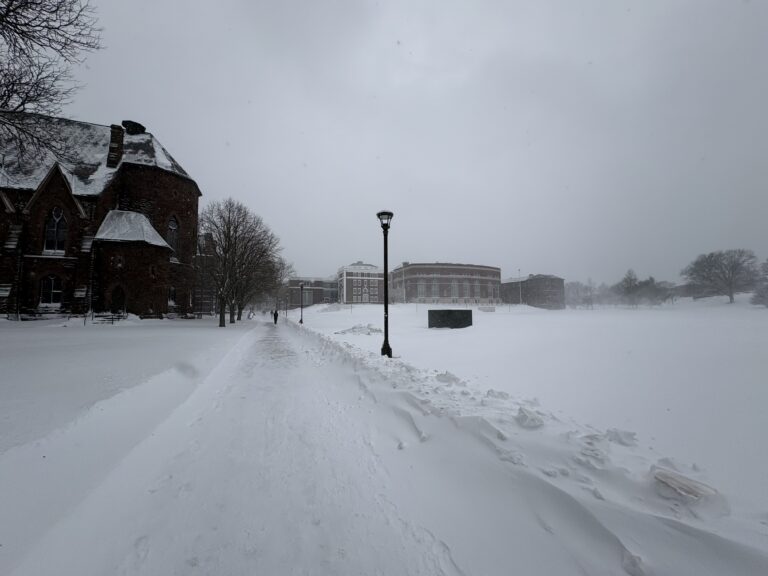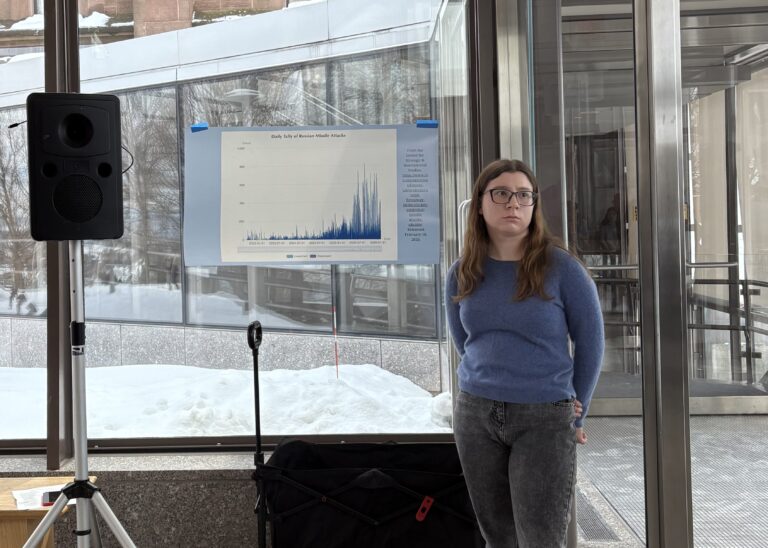Grad discusses Teach for America
As a senior, Kira Orange-Jones ’00 learned that the following year she would be moving to Baton Rouge, La. to teach a class of fourth graders through the Teach For America program.
Teach For America, an Americorps program, has the large-scale mission of eliminating educational inequity so that a student’s educational outcome is not dictated by socioeconomic circumstances. The program recruits smart, dedicated college graduates to spend a summer at “boot camp,” an intensive program of seminars and workshops, in preparation for two years of teaching in a low-performing rural or inner-city school.
Orange-Jones said that she was shocked at what she encountered in her classroom.
“I thought I’d be having them read Howard Zinn and helping them direct a feature film by the end of the year,” Orange-Jones said. “But when I got there I found I was dealing with fourth graders who couldn’t tell the letter A from the letter X.”
Educational inequity between the rich and the poor in the United States is one of the highest among industrialized nations, according to her presentation. At age nine, low-income students are already three years behind their high-income counterparts and seven times less likely to attend college.
Another statistic Orange-Jones noted in her informational seminar was that half of all African American and Latino students in the United States do not graduate from high school.
Orange-Jones said it was a month before she could call the students to order but that she had the entire class reading by December.
“Teach For America is not for everyone,” reads the first page of the program’s promotional brochure.
A recent study by a New Jersey think tank found that Teach For America teachers yielded higher test scores than novice teachers and teachers with years of experience.
In a question and answer session following Orange-Jones’ presentation, an audience member asked whether rivalries ever develop between Teach For America teachers and the regular faculty. She responded that the outsider status of the Teach for Ameria teachers is something that all corps members have to deal with but that it is the responsibility of the teacher to approach the job and school administration with respect.
But Orange-Jones did relate an anecdote in which the divide was unavoidable. One day Laura Bush came to Baton Rouge specifically to see the Teach For America program at work. It was life changing for Orange-Jones’ students to meet the First Lady and her entourage of aides and secret service personnel, she remembered. While this was happening in the Teach For America classroom, however, the rest of the school was locked down for security reasons, so for two and a half hours no one could leave the classrooms, even to use the bathroom.
But Orange-Jones reaffirmed the overwhelmingly positive relationship she has cultivated with the Baton Rouge community in the four years since she was assigned to teach there.
“It was my eleventh or twelfth choice on the application, after Montana,” she joked.
What was once a completely different world from the Bronx, where she grew up, has now become her home. She continues to live in Baton Rouge after her two-year teaching term ended, and has since founded a non-profit film production company, “Right Quick Productions”, with the help of alumni from Wesleyan and Teach for America.
Her first feature film, a documentary with the working title “Expecting Men,” follows four young African American men growing up in the South and explores the way race, class and education affect their lives. The film will screen at Wesleyan this winter as part of a college tour.
For more information on the Teach for America program, visit www.teachforamerica.org.
For more information on Right Quick Productions, visit www.rightquickproductions.org.







Leave a Reply